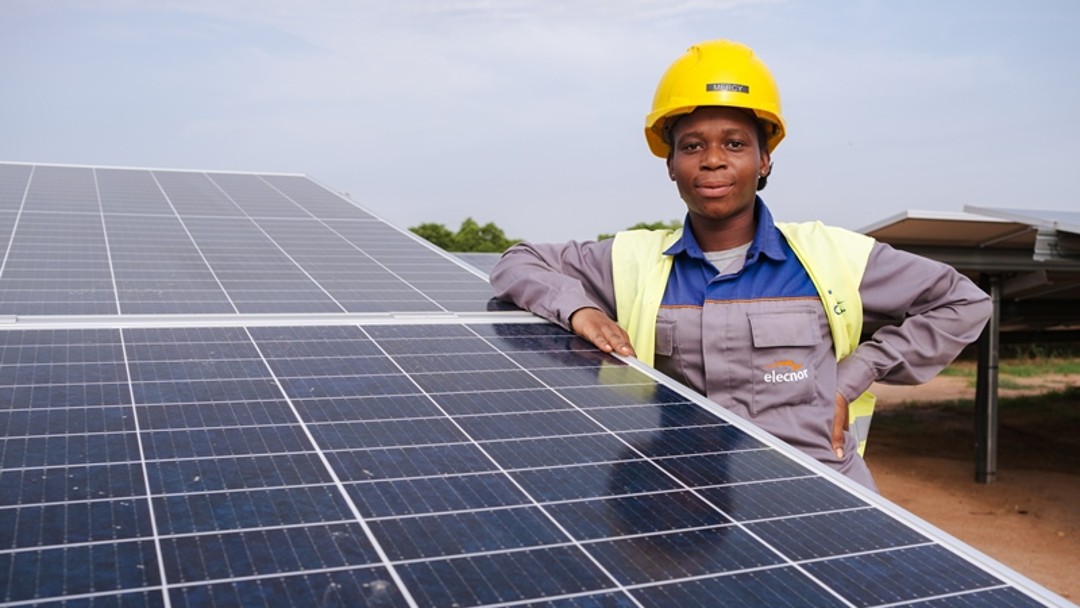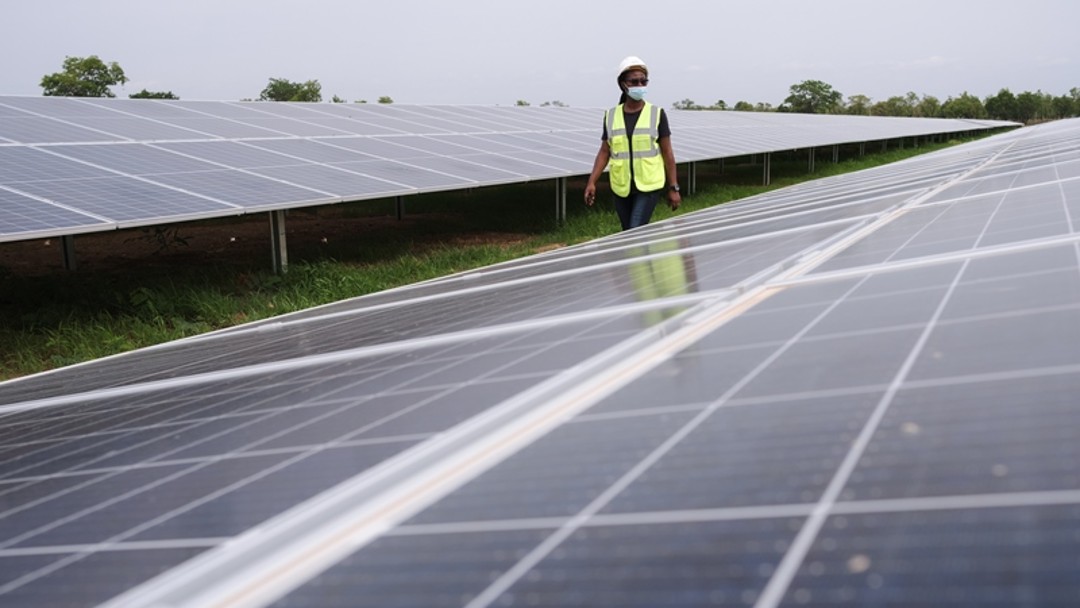News from 2021-08-24 / KfW Development Bank
Ghana - Private investors' risks in the energy sector hedged

The German Government is committed in many ways to supporting Africa's neighbouring continent in its own responsibility for security and development. The Federal Ministry for Economic Cooperation and Development (BMZ) is concretising the Compact-with-Africa initiative agreed during Germany's G20 presidency in 2017 with substantial funding commitments at the bilateral level with a "Marshall Plan with Africa" and reform partnerships.
Ghana is one of the - now seven - reform partnership countries. As part of the "DC Reform Programme Energy", KfW Development Bank is implementing the module "Renewable Energies and Energy Efficiency Ghana" with various components: Green Corridors and Smart Grids, Solar Energy Expansion and Green Credit Line. The programme is supplemented by a complementary measure to implement reforms and reduce investment barriers for private companies. In this context, KfW has used BMZ funds to facilitate Ghana's membership in the African Trade Insurance Agency (ATI) with EUR 16 million. The Ghanaian Ministry of Finance is the recipient of the funds, which are passed on to the ATI.
The African Trade Insurance Agency (ATI) is a multilateral African insurance agency with the aim of increasing investment by ATI member countries in sub-Saharan Africa. To this end, ATI provides insurance to cover political and commercial risks.
In the energy sector, for example, Ghana plans to expand renewable energies to a share of 10 %. For this, both the public sector and private entrepreneurs have to invest. The latter fear risks from war, expropriation, changes or cancellation of power purchase agreements or even the lack of solvency of public power suppliers. The ATI estimates the potential for private RE investments seeking risk protection at around USD 300 million per year.

Through ATI membership, an important foundation is laid for promoting private sector trade and investment in Ghana. This makes necessary infrastructure projects possible.
Isabel Makhoul, responsible for ATI in Ghana at KfW Development Bank, says: "Investment in infrastructure is a necessary prerequisite for sustainable growth. Africa needs to invest in infrastructure development, not only to achieve sustainable economic development, but also to create jobs that have been severely affected by the COVID 19 pandemic"
An example of support for infrastructure in the health sector: Deutsche Bank is putting together an initial financing package worth €55 million; specifically: the construction of two trauma hospitals in Obuasi and Anyinam districts, a new accident and emergency centre at Enyiresi Hospital and the rehabilitation of the current, outdated health centre in Obuasi - secured through ATI. When completed, the four projects will provide more than 200 hospital beds, and the new state-of-the-art equipment will greatly improve health services in each region.

Share page
To share the content of this page with your network, click on one of the icons below.
Note on data protection: When you share content, your personal data is transferred to the selected network.
Data protection
Alternatively, you can also copy the short link: https://www.kfw-entwicklungsbank.de/s/enzBWrMC.CjUA
Copy link Link copied